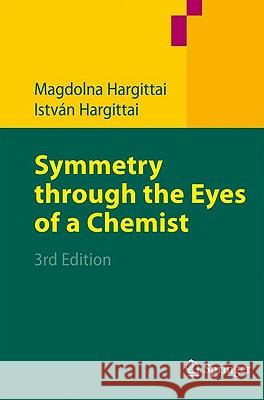Symmetry Through the Eyes of a Chemist » książka
Symmetry Through the Eyes of a Chemist
ISBN-13: 9781402056277 / Angielski / Twarda / 2009 / 520 str.
Symmetry Through the Eyes of a Chemist
ISBN-13: 9781402056277 / Angielski / Twarda / 2009 / 520 str.
(netto: 383,36 VAT: 5%)
Najniższa cena z 30 dni: 385,52
ok. 16-18 dni roboczych.
Darmowa dostawa!
It is gratifying to launch the third edition of our book. Its coming to life testi?es about the task it has ful?lled in the service of the com- nity of chemical research and learning. As we noted in the Prefaces to the ?rst and second editions, our book surveys chemistry from the point of view of symmetry. We present many examples from ch- istry as well as from other ?elds to emphasize the unifying nature of the symmetry concept. Our aim has been to provide aesthetic pl- sure in addition to learning experience. In our ?rst Preface we paid tribute to two books in particular from which we learned a great deal; they have in?uenced signi?cantly our approach to the subject matter of our book. They are Weyl's classic, Symmetry, and Shubnikov and Koptsik's Symmetry in Science and Art. The structure of our book has not changed. Following the Int- duction (Chapter 1), Chapter 2 presents the simplest symmetries using chemical and non-chemical examples. Molecular geometry is discussed in Chapter 3. The next four chapters present gro- theoretical methods (Chapter 4) and, based on them, discussions of molecular vibrations (Chapter 5), electronic structures (Chapter 6), and chemical reactions (Chapter 7). For the last two chapters we return to a qualitative treatment and introduce space-group sym- tries (Chapter 8), concluding with crystal structures (Chapter 9). For the third edition we have further revised and streamlined our text and renewed the illustrative material.











